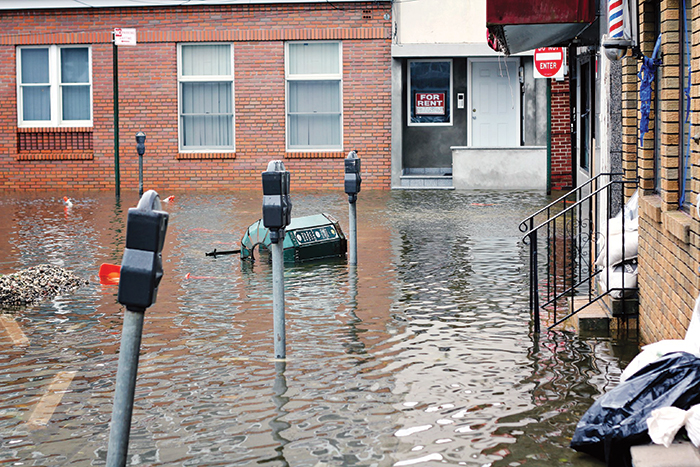File Photo
The 15 pols who signed the letter noted that nearly a year after Hurricane Ida, Queens remains highly susceptible to flood damage.
By Forum Staff
U.S. Rep. Grace Meng (D-Flushing) announced on Friday that she recently led a letter – signed onto by 14 other Queens elected officials – calling for New York State to prioritize flooding in the borough as it finalizes a key program to help address climate change.
Those joining the letter include Queens Borough President Donovan Richards; State Senators Jessica Ramos, John Liu and Leroy Comrie; Assemblymembers Brian Barnwell, Catalina Cruz, Andrew Hevesi, David Weprin, Jenifer Rajkumar and Ed Braunstein; and Councilmembers Linda Lee, Lynn Schulman, James Gennaro and Sandra Ung.
The correspondence asks the State Department of Environmental Conservation (DEC) to ensure that the types of floods occurring in Queens are a central part of the criteria in the Disadvantaged Communities program, an initiative to ensure that disadvantaged, frontline and otherwise underserved communities benefit from the state’s transition to cleaner, greener sources of energy. These types of disadvantaged communities are areas that are vulnerable to the impacts of climate change and consist of low and moderate income households, among other things. If this flooding is prioritized in the criteria, Queens could receive more state funding to address the problem.
The criteria for the program is being finalized by the Climate Justice Working Group, an advisory panel charged with working on the issue under New York’s Climate Act which recognizes that climate change does not affect all communities equally.
“Last year, the remnants of Hurricane Ida struck New York City and left a trail of disaster,” the elected officials wrote. “Our borough of Queens tragically lost eleven members of our community in the storm, leaving countless others without their home, car, and possessions. Many of the victims were from lower income and immigrant backgrounds and struggled to recover from the storm’s devasting effects. Ida also cost the city millions of dollars in property damage.”
“Nearly a year after the hurricane, Queens remains highly susceptible to flood damage,” the lawmakers continued. “According to the New York City Flood Hazard Mapper provided by the New York City Department of City Planning, thousands of Queens residents live in low lying flood prone areas, including parts of Flushing, Rego Park, Elmhurst, Forest Hills, and more. To reduce the damage caused by future floods, our borough requires urgent infrastructure upgrades. Increasing stormwater management capacity will depend on how much Queens is able to benefit from the Disadvantaged Communities program, in addition to federal programs from the $1.2 trillion Infrastructure Investment and Jobs Act.”
Furthermore, many of our low-income constituents live next to or near what can be considered environmental burdens. We have constituents that live near power generation facilities, freight rail lines, landfills, airports, and they endure toxic fumes, particulate matter, and loud noises. These are not only a major inconvenience, but they also pose serious health risks. Constant exposure to the noxious fumes and noises have been known to induce diminished cognitive performance, high blood pressure, hearing loss, heart and lung disease, and premature death,” the pols added. “The disadvantaged communities program is of paramount importance. As you finalize the criteria, please continue to take into account the devastating impacts of flooding.”

